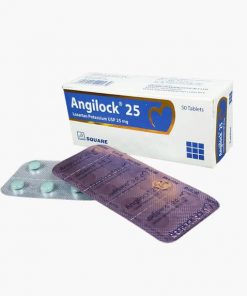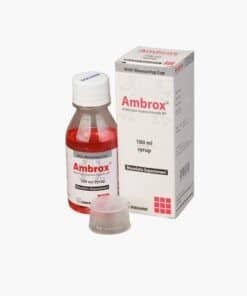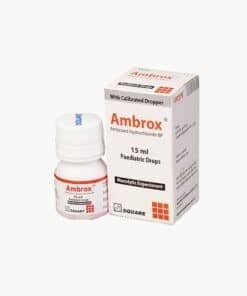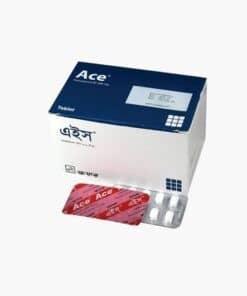Emjenta | 10/5 mg | Tablet | 10 pcs
৳ 300.00
Brand Name: Emjenta Tablet
Generic: Empagliflozin + Linagliptin
10 mg+5 mg
Manufacturer: NIPRO JMI Pharma Ltd.
Unit Price: ৳ 30.00 (20’s pack: ৳ 600.00)
Indications
Pharmacology
Dosage & Administration
Pediatric Patients: The safety and effectiveness in pediatric patients have not been established.
Geriatric Patients: Higher incidence of adverse reactions related to volume depletion and reduced renal function.
Renal Impairment: Higher incidence of adverse reactions related to reduced renal function.
Side Effects
- urinary tract infection
- stuffy or runny nose and sore throat
- upper respiratory tract infection
Pregnancy & Lactation
Precautions & Warnings
Ketoacidosis: Assess patients who present with signs and symptoms of metabolic acidosis for ketoacidosis, regardless of blood glucose level. If suspected, discontinue this tablet, evaluate and treat promptly. Before initiating this tablet, consider risk factors for ketoacidosis. Patients on this tablet may require monitoring and temporary discontinuation of therapy in clinical situations known to predispose to ketoacidosis.
Volume Depletion: Before initiating this tablet, assess volume status and renal function in patients with impaired renal function, elderly patients, or patients on loop diuretics. Monitor for signs and symptoms during therapy.
Urosepsis and Pyelonephritis: Evaluate patients for signs and symptoms of urinary tract infections and treat promptly, if indicated.
Hypoglycemia: Consider lowering the dose of insulin secretagogue or insulin to reduce the risk of hypoglycemia when initiating this tablet.
Necrotizing Fasciitis of the Perineum (Fournier’s Gangrene): Serious, life-threatening cases have occurred in both females and males. Assess patients presenting with pain or tenderness, erythema, or swelling in the genital or perineal area, along with fever or malaise. If suspected, institute prompt treatment.
Genital Mycotic Infections: Monitor and treat as appropriate.
Hypersensitivity Reactions: Serious hypersensitivity reactions (e.g., anaphylaxis, angioedema, and exfoliative skin conditions) have occurred with empagliflozin and linagliptin. If hypersensitivity reactions occur, discontinue this tablet, treat promptly, and monitor until signs and symptoms resolve.
Arthralgia: Severe and disabling arthralgia has been reported in patients taking DPP-4 inhibitors. Consider as a possible cause for severe joint pain and discontinue drug if appropriate.
Bullous Pemphigoid: There have been reports of bullous pemphigoid requiring hospitalization. Tell patients to report the development of blisters or erosions. If bullous pemphigoid is suspected, discontinue this tablet.
Heart Failure: Heart failure has been observed with two other members of the DPP-4 inhibitor class. Consider risks and benefits of this tablet in patients who have known risk factors for heart failure. Monitor for signs and symptoms.
Storage Conditions
| Tablet | 10 mg+5 mg |
|---|---|
| Generic Name | Empagliflozin + Linagliptin |
Only logged in customers who have purchased this product may leave a review.











Reviews
There are no reviews yet.